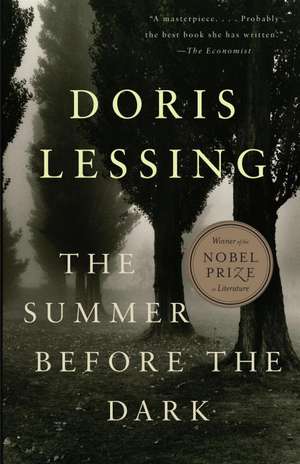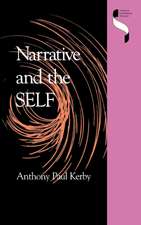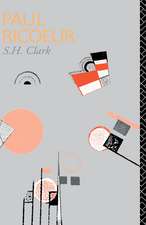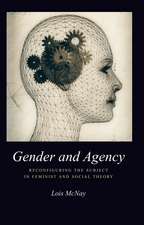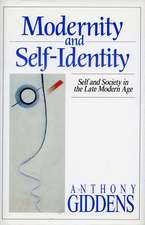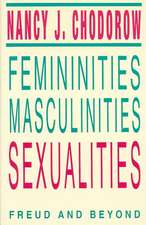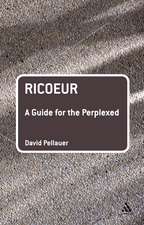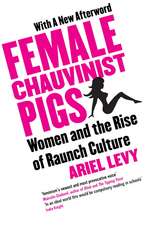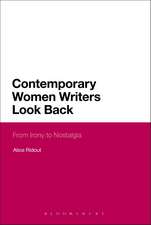The Summer Before the Dark
Autor Doris Lessingen Limba Engleză Paperback – 30 iun 2009
As the summer begins, Kate Brown—attractive, intelligent, forty-five, happily married, with a house in the London suburbs and three grown children—has no reason to expect that anything will change. But by summer's end the woman she was—living behind a protective camouflage of feminine charm and caring—no longer exists. The Summer Before the Dark takes us along on Kate's journey: from London to Turkey to Spain, from husband to lover to madness, on the road to a frightening new independence and a confrontation with herself that lets her finally and truly come of age.
| Toate formatele și edițiile | Preț | Express |
|---|---|---|
| Paperback (2) | 75.45 lei 3-5 săpt. | +8.07 lei 4-10 zile |
| HarperCollins Publishers – 31 oct 1995 | 75.45 lei 3-5 săpt. | +8.07 lei 4-10 zile |
| Vintage Books USA – 30 iun 2009 | 116.57 lei 3-5 săpt. |
Preț: 116.57 lei
Nou
Puncte Express: 175
Preț estimativ în valută:
22.31€ • 24.22$ • 18.74£
22.31€ • 24.22$ • 18.74£
Carte disponibilă
Livrare economică 01-15 aprilie
Preluare comenzi: 021 569.72.76
Specificații
ISBN-13: 9780307390622
ISBN-10: 0307390624
Pagini: 273
Dimensiuni: 130 x 201 x 20 mm
Greutate: 0.23 kg
Editura: Vintage Books USA
Colecția Vintage Books
ISBN-10: 0307390624
Pagini: 273
Dimensiuni: 130 x 201 x 20 mm
Greutate: 0.23 kg
Editura: Vintage Books USA
Colecția Vintage Books
Notă biografică
Doris Lessing was born of British parents in Persia, in 1919, and moved with her family to Southern Rhodesia when she was five years old. She went to England in 1949 and has lived there ever since. She is the author of more than thirty books—novels, stories, reportage, poems, and plays. In 2007, she was awarded the Nobel Prize in Literature.
Extras
At HomeA woman stood on her back step, arms folded, waiting. Thinking? She would not have said so. She was trying to catch hold of something, or to lay it bare so that she could look and define; for some time now she had been "trying on" ideas like so many dresses off a rack. She was letting words and phrases as worn as nursery rhymes slide around her tongue: for towards the crucial experiences custom allots certain attitudes, and they are pretty stereotyped. Ah yes, first love! . . . Growing up is bound to be painful! . . . My first child, you know. . . But I was in love! . . . Marriage is a compromise. . . . I am not as young as I once was. Of course, the choice of one rather than another of these time-honoured phrases has seldom to do with a personal feeling, but more likely your social setting, or the people you are with on an occasion. You have to deduce a person's real feelings about a thing by a smile she does not know is on her face, by the way bitterness tightens muscles at a mouth's corner, or the way air is allowed to flow from the lungs after: I wouldn't like to be a child again! Such power do these phrases have, all issued for use as it might be by a particularly efficient advertising campaign, that it is probable many people go on repeating Youth is the best time of your life or Love is a woman's whole existence until they actually catch sight of themselves in a mirror while they are saying something of the kind, or are quick enough to catch the reaction on a friend's face.A woman stood on her back doorstep, arms folded, waiting for a kettle to boil.There had been power cuts most of the day, because of a strike. Tim, her youngest, and Eileen, her daughter, had driven out into the country early, had gathered fallen wood in Epping Forest and--enjoying every minute of it--had built a fire on the gravel of the path, and fixed over it a tripod made of scrap iron found at the back of the garage. This fire, the cooking on it, the watching of it, the joking about it, had been the family's point of enjoyment all day. The woman, however, had found it all rather irritating. The kettle had taken twenty minutes to reach even the stage of singing: she could not remember having heard a singing kettle for years. Electricity brought water from stillness to turmoil in a moment, and singing was bypassed altogether. . . .Perhaps she had been insensitive? Perhaps both Tim and Eileen--who were after all grown up, were nineteen and twenty-two--had not enjoyed the day's small contrivings as much as it had seemed; they had been pretending out of social feeling? Their behaviour had been, in fact, the equivalent of one of the old phrases, a convention which people did not know how to lose in favour of the truth--whatever that was?Just like herself.The truth was, she was becoming more and more uncomfortably conscious not only that the things she said, and a good many of the things she thought, had been taken down off a rack and put on, but that what she really felt was something else again.The woman unfolded her arms, took a couple of steps towards the absurd contraption in the middle of her gravel path, pushed some more twigs under the kettle where it dangled from a bit of bent wire from the tripod, and listened: was the note of the kettle's singing changing at all? She thought it was. If there was going to be a power cut tomorrow, as was threatened, then it would be sensible to get a camper's stove, or something of the sort: this boyscouting was all very well, but if it rained . . . the strike was likely to go on for some time, they said. This series of power cuts did seem to have come very fast after the last? It did rather look as if crises over power--heat, light, fuel--were bound to become more frequent, and it would be wise to make provision? Perhaps Tim and Eileen were right; a load of wood might be a good idea.The woman returned to her back step, leaned against the wall, and folded her arms again.There were the public, or communal, events--wars, strikes, floods, earthquakes; what are felt as Acts of God. There was the feeling abroad, irrational or not, that these events, once high and rare (or had they ever been, was that just false memory?), were moving into the first place of everyone's experience, as if an air that had once been the climate of a distant and cataclysmic star had chosen to engulf our poor planet. The crucial experiences, when you came to think about it, were for more and more people: invasion, war, civil war, epidemic, famine, flood, quake, poisoning of soil, food, and air. For these, the allotted attitudes were even more stereotyped. None go much beyond: We ought to be doing something about it. or Oh woe, alas! There aren't so many nuances possible for: My whole family died in the concentration camp, or Four of my children have died of famine, or My sister and her child were killed by the soldiers. But it did rather look as if the stereotypes for the public events were more honest than the private ones? Oh woe, alas! was about it?She noted that the kettle was quieter, and reached her arm inside the room behind her, the kitchen, to fetch out a very large china coffee pot that already had the coffee in it. She stood with this in her hand, close to the fire, watching for the steam to start rattling the kettle lid.It was all nonsense to see things in terms of peaks and crises: the personal events, like the public ones, were longterm affairs, after all. They built up. . . . It is after--at least months, but it is usually years--that a person will say, My God, my whole life has changed, talking about a passion of love or hate, a marriage, a testing job of work. My life has changed because I have changed.Steam was now energetically at work on the kettle lid, and pouring out of the spout.She grasped the handle of the kettle with her oven pad and doused the coffee with hissing and dangerous water. She set the kettle on one side of the fire, but not on the lawn, which would otherwise have a circular yellow patch on it, and pushed some of the half-burned sticks away from the centre of the fire; if it rained, she must remember to get them and the unburned wood under cover. She was no boy scout to know how to start a fire with wet wood.She took the kettle in one hand, the coffee pot in the other, and left the back garden for the kitchen.I've been in the crucible, I've been ground fine in the mills. . . . Not without a certain satisfaction were these things said, or felt. Surely that was an extraordinary fact? The sense of achievement was extraordinary? For after all, it was felt as much by people who were among the (comparatively small) numbers of the world's inhabitants who were dedicated to the proposition that a life is no more important than a beetle's, as by those who held the old view, that it matters what we do because we are important in the eyes of a God. Or Gods. But why should anyone care that he, she, has changed, has learned, matured, grown, if he or she, is a beetle? Or even a butterfly? For there is no doubt at all that there does persist the feeling, and it is probably the deepest one we have, that what matters most is that we learn through living. This feeling should be attributed to habit, a hangover from earlier, more primitive times? To the beetle's self-importance? But it was there, there was no doubt of that, "God" having been banished, or pronounced dead, or not. To whom is a beetle expected to present its accounts?We are what we learn.It often takes a long and painful time.Unfortunately, there was no doubt, too, that a lot of time, a lot of pain, went into learning very little. . . .She was really feeling that? Yes, she was.Because she was depressed? Was she depressed? Probably. She was something, she was feeling something pretty strongly that she couldn't put her finger on. . . .The woman put the coffee pot on a tray already laid with cups and saucers and spoons and sugar and strainer, and picked up the tray: before carrying it out of the room she looked back at a table on which dirty dishes from the midday meal were piled. There were dishes there from breakfast, too. Perhaps she could ask Tim to build up the fire again, reboil the kettle, and then call her in when there was enough water to do all the washing up? No, better not, not in the mood he was in; it would be better to do it all herself later.A woman walked out of a side door over a lawn that needed cutting and was attractively dotted with daisies towards a tree in her garden. This woman was Kate Brown; to be accurate Catherine Brown, or Mrs. Michael Brown. She carefully carried her tray, and she was thinking about the washing up while she continued her private stocktaking, her accounts-making . . . she was wishing that whatever stage of her life she was in now could be got through quickly, for it was seeming to her interminable. If life had to be looked at in terms of high moments, or peaks, then nothing had "happened" to her for a long time; and she could look forward to nothing much but a dwindling away from full household activity into getting old.Sometimes, if you are lucky, a process, or a stage, does get concentrated. It was going to turn out for Kate that that summer would be such a shortened, heightened, concentrated time.What was she going to experience? Nothing much more than, simply, she grew old: that successor and repetition of the act of growing up. It happens to everyone, of course . . . Ah me, time flies! . . . Before you know it, life has gone past . . . Ripeness is all. And so on. But in Kate's case it would not at all be a process lasting a decade or two, hardly to be noticed while it went on except in desperate attempts to hold the flood--tinting her hair, keeping her weight down, following the fashions carefully so that she would be smart but not mutton dressed as lamb. Growing old for nearly everybody, unless struck by disaster, the earth sliding away from under one's feet, water flooding a city, bombs destroying one's children and striking one's own heart into an indifference to living--growing old is a matter of years. You are young, and then you are middleaged, but it is hard to tell the moment of passage from one state to the next. Then you are old, but you hardly know when it happened. Changes have taken place--oh yes, vital ones--in your attitudes to those around you, but you are hardly aware of them, because the ice has ground so slowly down the valley. It is something like that for most people: I'm afraid I am not as young as I once was. But Kate Brown was going to get the whole thing over with in a few months. Because while everything seemed so personal, and aimed at her--her patience, her good humour, her time-- in fact it would be pressures from the other, the public, sphere pressing on her small life that would give what she experienced its urgency? However that might be, the summer's events were not going to be shaped through any virtues or capacities of her own.By the time it was all over with, she would certainly not have chosen to have had it differently: yet she could not have chosen it for herself in advance, for she did not have the experience to choose, or the imagination. No, she could not want what was going to happen, although she did stand under her tree, the tray in her hands, thinking: It does go on and on! That's what's wrong: there must be something I could be seeing now, something I could be understanding now, some course of action I could choose . . .Choose? When do I ever choose? Have I ever chosen?A woman, as she might have done any time during the past several hundred years, stood under a tree, holding a crowded tray. She put the tray down on a garden table made of some substance invented in the last decade. The table looked like iron, was so light it could be lifted with two fingers, was balanced so that it did not blow over if a weight was put on one side.She did not regard that table as a choice; it was chosen for her, like the plastic of the cups, which looked so like china.She walked back into the middle of the lawn and, before taking in a breath to call up to the upper windows of the house, was conscious of what would be seen when her husband looked out to say: "Coming!"A woman in a white dress, white shoes, a pink scarf around her neck, standing on grass.Now here was an area of choice, conscious, deliberate: her appearance was choice, all exquisite tact, for it was appropriate for this middle-class suburb and her position in it as her husband's wife. And, of course, as the mother of her children.The dress came off a rail marked Jolie Madame, and was becoming and discreet. She wore shoes and stockings. Her hair--and now we reach the place where most energy had gone into choice--was done in large soft waves around a face where a few freckles had been allowed to remain on the bridge of her nose and her upper cheeks. Her husband always said he liked them there. The hair was reddish--not too dramatically so. She was a pretty, healthy, serviceable woman.She stood on the grass, shaded her eyes, and called up, "Michael, Michael! Coffee!"An indistinct face from behind panes that dazzled with sunlight shouted, "Coming!"A woman dressed suitably for a family afternoon walked back across the lawn, but with care so that the grass did not mark her shoes. Her own choice would have been to go barefooted, to discard her stockings, and to wear something like a muu-muu or a sari or a sarong--something of that sort--with her hair straight to her shoulders.
Recenzii
"A masterpiece. . . . Probably the best book she has written."
—The Economist
"A splendid and serious novel that reminds one once again of just how much the fictive imagination can order and enrich experience."
—The National Observer
"We are caught up in a rush of strong feeling. . . . Lessing's prose has the nervous intensity and quick, impressionistic lightness of some of D.H. Lawrence's later work."
—Newsweek
—The Economist
"A splendid and serious novel that reminds one once again of just how much the fictive imagination can order and enrich experience."
—The National Observer
"We are caught up in a rush of strong feeling. . . . Lessing's prose has the nervous intensity and quick, impressionistic lightness of some of D.H. Lawrence's later work."
—Newsweek
Descriere
Descriere de la o altă ediție sau format:
The story of a middle-aged woman's search for freedom, from Doris Lessing, winner of the Nobel Prize for Literature.
